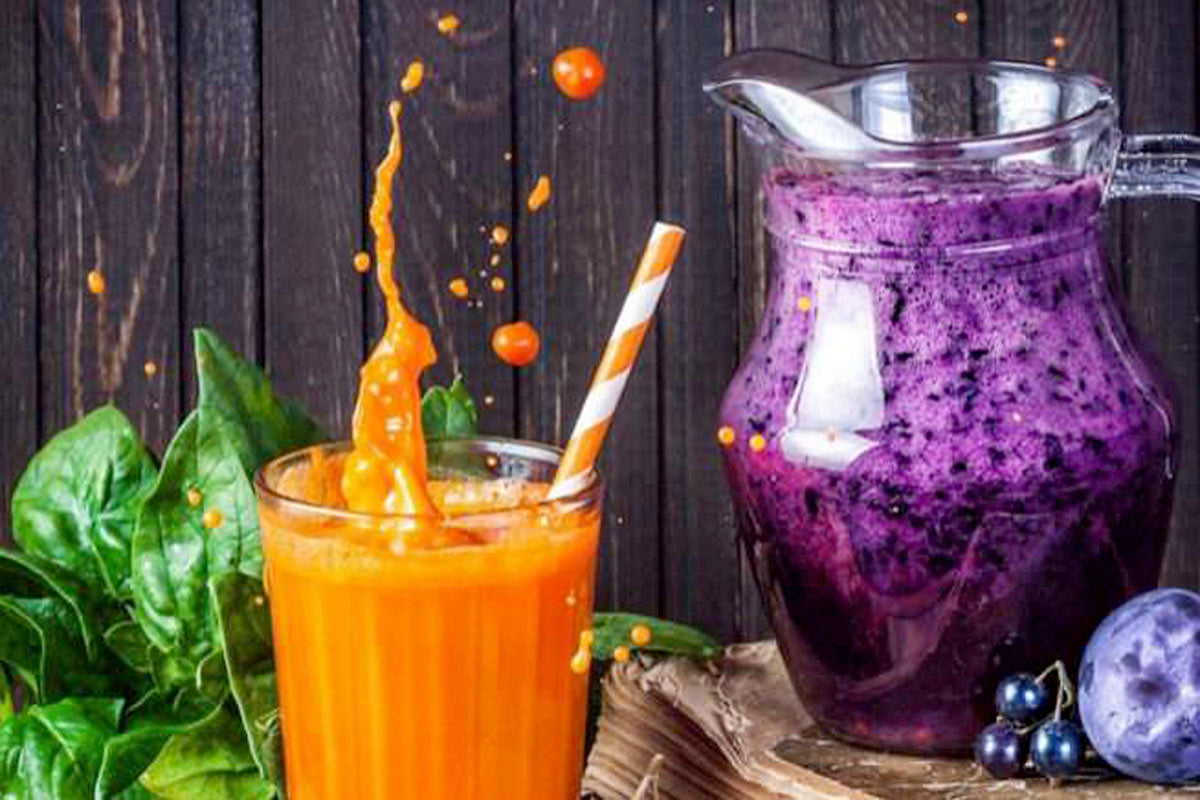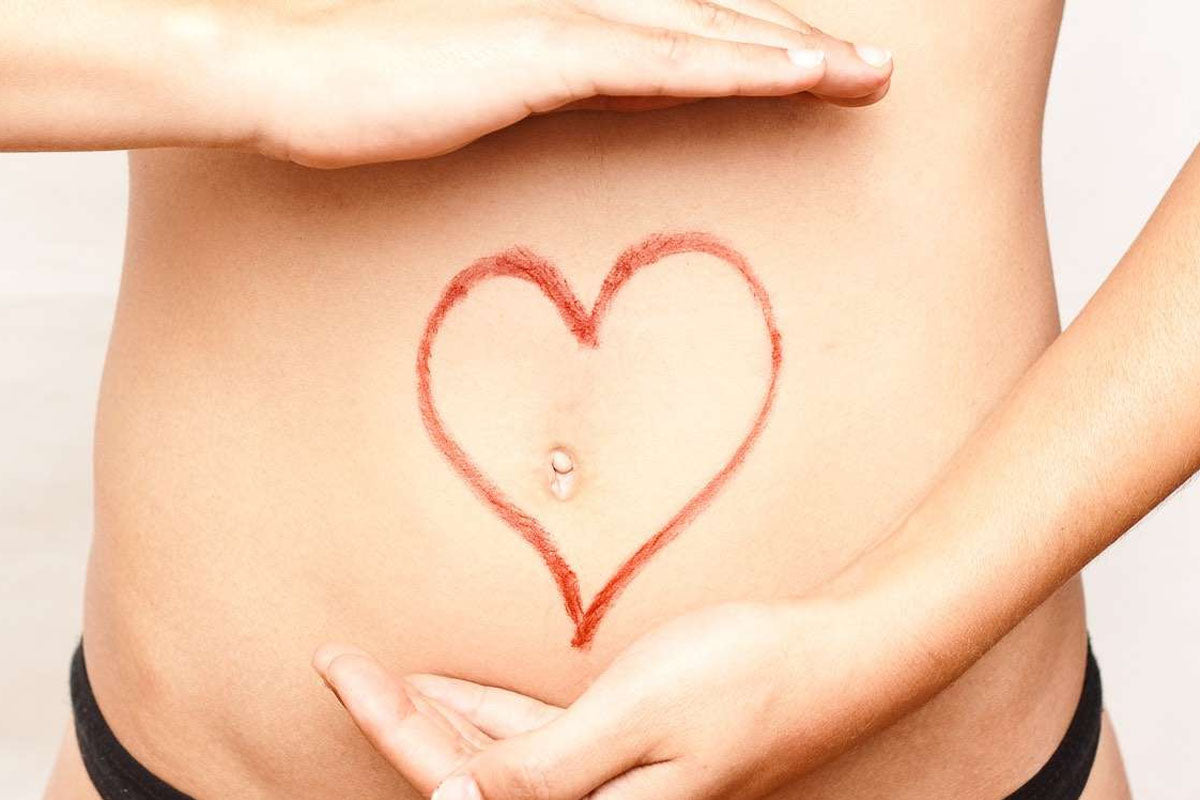At ZENii we believe in nourishing your skin from within. Every cell in your body and in your skin needs vital micronutrients in order to function properly and thrive. What you take in your diet is an extremely powerful influence on your general wellbeing and the state of your skin.
Many of us live stressful and busy lives, grabbing lunch on the go or eating erratically from sources that aren’t always natural. Skipping meals or eating food with poor nutritional quality will have an impact on your skin quality in the long term. Low intake of dietary fats due to ‘fat phobia’ or simply following a restricted diet like a gluten free or vegetarian diet can also mean you miss vital daily micronutrients.
In this blog, our guest Nutritionist Liz Hamilton Burdge will give you a comprehensive guide on how to eat your way to good skin. For those who do not get enough micronutrients in their diet, try our ZENii Skin Health supplements, scientifically formulated by our Skin Doctors and Nutritionists to combine everything that you need for wellness and skin health in two daily capsules. From vitamins & minerals, to antioxidants, marine collagen, fish oils, hyaluronic acid and green tea.. everything you could want or need on a daily basis for skin health and wellness is contained in these two incredible capsules.
LIZ:
One of the biggest motivations to adopt a more nutritious diet is the desire to improve skin health. People of all ages struggle with skin conditions such as acne, rosacea, psoriasis, eczema, dry skin and sun damage. Skin problems can be upsetting, but what many people don’t realise is that many skin problems are linked to nutritional status. Conventional medicine has doctors prescribing more topical creams than our medicine cabinets can hold, but instead of looking in our medicine cabinets, it might be wiser to examine the contents of our kitchens.
Discounting the connection between skin health and nutrition is a mistake many of us make. Strong evidence now supports how our food choices directly influence the health and vibrancy of our skin.
A vegetable rich diet can help mitigate sun damage and premature ageing. Studies have found that a high intake of vegetables, legumes and olive oil prevent skin damage such as wrinkling. They also concluded that a high intake of Vitamin C (abundant in dark, leafy greens and citrus fruits) and linolenic acid (abundant in flax seeds and walnuts) help to improve skin moisture and elasticity.
The expression “You are what you eat” should be heeded, but it is also a case of “You are what you absorb”. If someone has problematic skin then taking a closer look at how they’re digesting their foods is the first step to improvement. If we are not absorbing key nutrients then we are not going to feel the benefits at the cellular level. Your skin reflects the state of your nutrition and is often the last place to receive nutrients. If you improve your digestion, and support the good and bad bacteria within your gut lining, a glow will follow.
Some basic steps to healing your gut are:
– Address gut permeability by doing an elimination diet. This will help you pinpoint the foods you are allergic or sensitive to. Common food allergens are wheat, dairy, eggs, nuts and chemical additives.
Implement foods and minerals that support gut healing like bone broth and magnesium.
– Add natural probiotics to your diet like sauerkraut, kimchi, kefir, and kimchi to experience the power of fermented foods. Natural probiotics are a great way of reintroducing the good bacteria into your gut. These may have been lost through illness, stress, antibiotic use, foreign travel etc. If you cannot stomach natural probiotics then try ZENii’s high strength, 8 strain probiotic supplements.
– If you’re experiencing troubled skin then, changing what you eat and how your body uses it is key. Healing from the inside out is the best approach to lasting skin health.
Here are some top tips for eating for skin health:
Good nutrition combined with a consistent and effective skin care routine can transform your skin and the way it will age. Futureproof your skin from today…
Water
Our body relies on water for survival and our skin is approximately 60-70% water.
Water helps to detoxify and cleanse our bodies. Ideally, women need 1.6L per day and men 2L per day taken slowly over the course of the day. Don’t forget that we get water from other drinks and foods as well. The best thing to do is to drink plenty and often. The best source is mineral water.
Good water intake will help your skin look hydrated, plump and less wrinkled.
Vitamin C
Possibly the vitamin we know most about. because of its ability to help build our immune system, Vitamin C also helps reduce pigmentation and blemishes in the skin and is one of the most researched and powerful skin anti-oxidants. Research by the American Society for Clinical Nutrition suggests that there is a correlation between a diet high in Vitamin C and skin anti-ageing.
Vitamin C is a co-factor for collagen production. Without it your collagen will not be healthy and abundant, so make sure you get enough Vitamin C in your diet. Smokers need more vitamin C than the rest of us because chemicals in cigarettes deplete it.
It should be easy to incorporate it into your diet because some of the tastiest fruits are high in Vitamin C and you can eat them on the go as a healthy snack. Great sources include oranges, kiwi fruit, blueberries, guava, papaya and strawberries.
Vitamin A
The ultimate skin vitamin, Vitamin A helps our skin by encouraging skin cell turnover, improving elasticity and increasing collagen production. Research from The Journal of Cosmetic Dermatology shows that using Vitamin A in skincare has a positive impact on reducing the appearance of fine lines. Dermatologists all over the world have long known that Vitamin A, taken orally and topically, can help reduce fine lines and wrinkles. Foods that are a great source of Vitamin A include pumpkin, kale, carrots, squash and spinach.
Vitamin E
This well-researched vitamin is great for reducing the damage on our skin caused by free radicals. Vitamin E helps our skin form a shield from external pollutants and free radicals and provides great hydration too. For people suffering from dry skin why not try eating foods high in Vitamin E to reduce skin flaking. Sources of Vitamin E include avocado, hazelnuts, almonds, oils (sunflower and corn oil) and pine nuts. Sunflower oil can be particularly useful to help reduce spots.
Omega Fats
Omega fats are essential for healthy skin. Low fat and restricted diets often lack these vital fatty acids. Omega 3 & 6 are called ‘essential fatty acids’ because our bodies cannot make them. We need a daily intake of good fats to ensure that we get enough of these vital fatty acids. Omega fats have important anti-inflammatory qualities for the skin and can help the skin maintain moisture through enhancement of the barrier function. Suffers of eczema, psoriasis or skin dryness need to optimise their intake of oily fish, walnuts, rapeseed oil and flaxseed oil. Good sources of Omegas include salmon, mackerel and sardines. If you don’t eat oily fish at least 3 times a week then try ZENii Omega Supplements.
Zinc
Zinc is a trace mineral essential to all forms of life because of its role in gene expression, cell growth and cell replication, immune function and anti-inflammation.
Zinc needs to be taken daily in the diet. In terms of the skin zinc works as an anti-oxidant, it helps control inflammatory skin disorders like acne and rosacea, it is anti-microbial which means it helps control bacteria in the skin.
Zinc deficiency is common around the world due to poor quality and restricted diets. Deficiency is higher in vegans and vegetarians. Good sources of Zinc are cashew nuts, grains, legumes, chickpeas, mushrooms, pumpkin seeds, shellfish, salmon, lamb and grass fed beef and poultry.
If you cant get enough Zinc in your diet then consider ZENii’s Radiance multivitamin & minerals to reduce your deficits.
Selenium
An important mineral for improving our skin’s barrier function to protect against sun damage and reducing the likelihood of skin cancer. It works by neutralising free radicals and other skin damaging compounds before they can lead to wrinkles. Selenium works well in synergy with Vitamin E to safeguard cell membranes, the protective coating around cells. In addition, selenium protects against UV induced cell damage, skin inflammation, skin pigmentation and premature ageing. So it’s easy to see why selenium is a key player in anti-ageing and skin health. Good sources of selenium are brazil nuts, crabs, eggs, tomatoes and broccoli.
ZENii Vitality:
If you cannot get enough of all these good things in your diet, then why not try ZENii Vitality daily supplements – scientifically formulated to deliver all the micronutrients that your skin and GMO and gluten free. All ZENii supplements are made in the UK under GMP standards to fulfil your needs in two tiny capsules a day. Supplement your deficits and give your cells everything they need for optimised cellular function, wellbeing and anti-ageing. Start today and you will never look back.
ZENii is a Doctor led skincare, vitamin and wellbeing range focused on delivering intelligent, science driven anti-ageing products with results.
References:
Vitamin C: http://ajcn.nutrition.org/content/86/4/1225.short
Vitamin A: http://onlinelibrary.wiley.com/doi/10.1111/j.1473-2165.2007.00313.x/full
Fatty Acids: http://www.sciencedirect.com/science/article/pii/S0738081X10000441
Eggs: http://www.tandfonline.com/doi/abs/10.4081/ijas.2007.1s.728


Liz Hamilton-Burdge is a qualified pilates instructor and functional nutritionist from New York. Health and wellness is her passion and sharing that with others is what drives her every day. Her experience as a functional nutritionist, health coach, personal chef and pilates instructor has given her the knowledge and tools to design a healthy lifestyle program to fit her clients' needs. Her goal is to motivate and assist others in creating their own individual roadmap that suits their unique body, lifestyle, preferences and goals.





